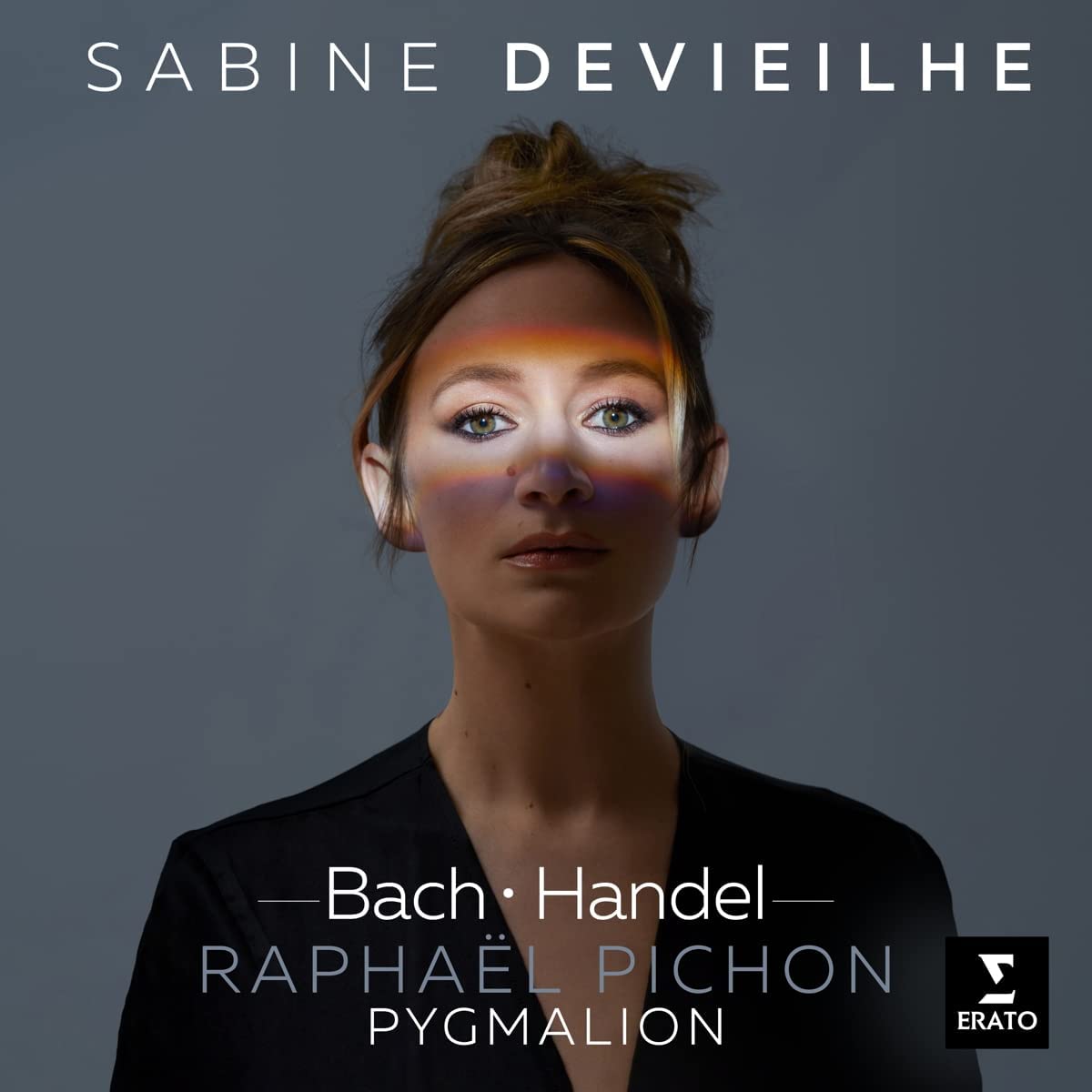Sabine Devieihle: Bach · Handel
Pygmalion, Raphael Pichon
83:37
Earto 1 90296 67786 1
Click HERE to buy this album on amazon
[Doing so supports the artists, the record company and keeps this site available – if no-one buys, no money is made and the site will disappear…]
The stated aim of this CD is ‘to portray affliction and repentance as well as joy and desire through the works, sacred and profane,’ of Bach and Handel. This catch-all mission statement has the ring of something made up to try to cover an eclectic range of performances, and indeed that proves to be what we are presented with. However, the sweet-voiced Sabine Devielhe sings so expressively and exquisitely while the forces of Pygmalion make such a wonderfully effective contribution that it almost doesn’t matter that the thematic links may be a little tenuous. The programme provides beautiful performances of Bach’s cantatas BWV 51 and 199, as well as the Sinfonia from BWC 199 and the sacred song Mein Jesu was vor Seelenweh BWV 487. Perhaps the odd part of the programme is that where a further couple of Bach cantatas and sacred songs could have provided the balance, the performers turn instead to the oratorios and operas of Handel. We have two arias from the Brockes Passion, interspersed with two arias from Giulio Cesare, rounded off with the final aria from Il Trionfo del Tempo e del Disinganno. Interestingly, the Brockes Passion finds Handel at his most Bachian, and the direct comparison that this juxtaposition invites is instructive. The impressive Devieilhe proves equally effective as a singer of Baroque opera, while her account of the concluding recit and aria from Il Trionfo del Tempo e del Disinganno is simply spellbinding. The concluding showpiece, BWV 51 Jauchzet Gott in allen Landen, in which Devieilhe duets dramatically with Pygmalion’s trumpeter, Hannes Rux, is a suitably showy conclusion to this enjoyable and impressive CD. Raphael Pichon, who can on occasion be a bit of a showman, demonstrates here that he can direct with subtlety and refinement, allowing this powerful music to speak very much for itself.
D. James Ross
